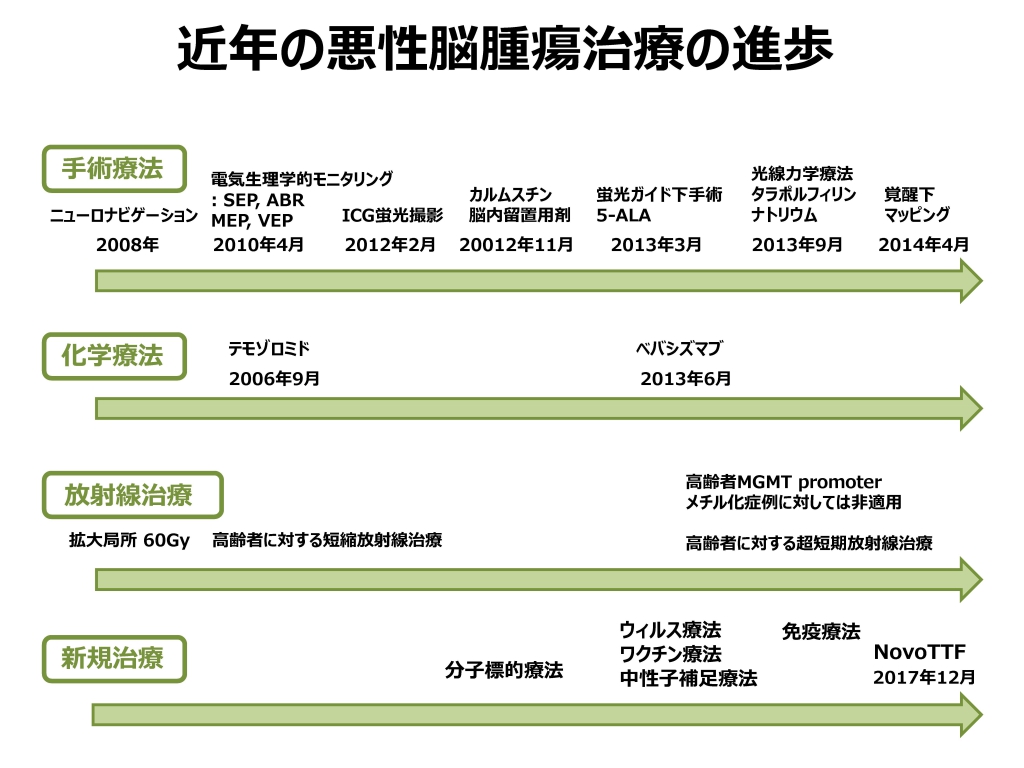Clinical Information
Multidisciplinary treatment of malignant brain tumors
Most patients with malignant brain tumors will be treated at university hospitals. This is because many doctors specializing in the treatment of malignant brain tumors work at universities, and they have a wide range of treatment equipment and techniques. If you have been diagnosed with a malignant brain tumor, you and your family members may be overwhelmed with a sense of hopelessness. It is true that in the past, the treatment results of malignant brain tumors were disastrous. However, treatment of malignant brain tumors has come a long way in the last 15 years. New techniques in surgery, chemotherapy, radiotherapy and new therapies have been introduced that are covered by insurance and have improved outcomes. Many people are now living a normal life for a long time. That is why we want you to be able to face your illness and receive treatment with peace of mind. We will do our best to support you in the development of an appropriate treatment plan.

Although the primary goal of treatment for malignant brain tumors has long been to prolong survival, recently, there has been much interest in how to maintain good conditions during the longer period of survival. To maintain quality of life (QOL), it is important to preserve not only the functions that are essential for daily life, such as motor, sensory, and language functions, but also the higher brain functions that play an important role in social life.
As surgical methods, waking surgery and electrophysiological monitoring are useful for preserving brain functions. Our institution actively performs waking brain surgery (we are an accredited institution for waking brain surgery). The procedure, in which the patient is awakened during surgery and undergoes various tests while receiving direct electrical stimulation to the brain, has been shown to have fewer sequelae and a higher rate of lesion removal. We are one of the top five hospitals in Japan in terms of the number of experience, and we are one of the few facilities that perform wake-up surgeries, especially those that preserve higher brain functions, which are necessary for people to live better as they would like. Recently, we have seen an increase in patients from outside of Ishikawa Prefecture.
Temozolomide and bevacizumab as chemotherapy are useful for maintaining brain function due to their anti-tumor and anti-edema effects, respectively. The timing of when bevacizumab is used depends on the facility.
Elderly patients are more likely to experience cognitive impairment after radiation therapy, and methods that use the lowest possible dose for the shortest amount of time are recommended. In addition, NovoTTF (Optune®) is a new treatment method that inhibits cell proliferation and does not damage the brain other than the tumor, so it can be expected to maintain brain function.
We have been using these methods of treatment in accordance with the best choice for each individual’s condition, and have achieved good results. In some cases, we can choose the latest treatment from our clinical trial facilities.
